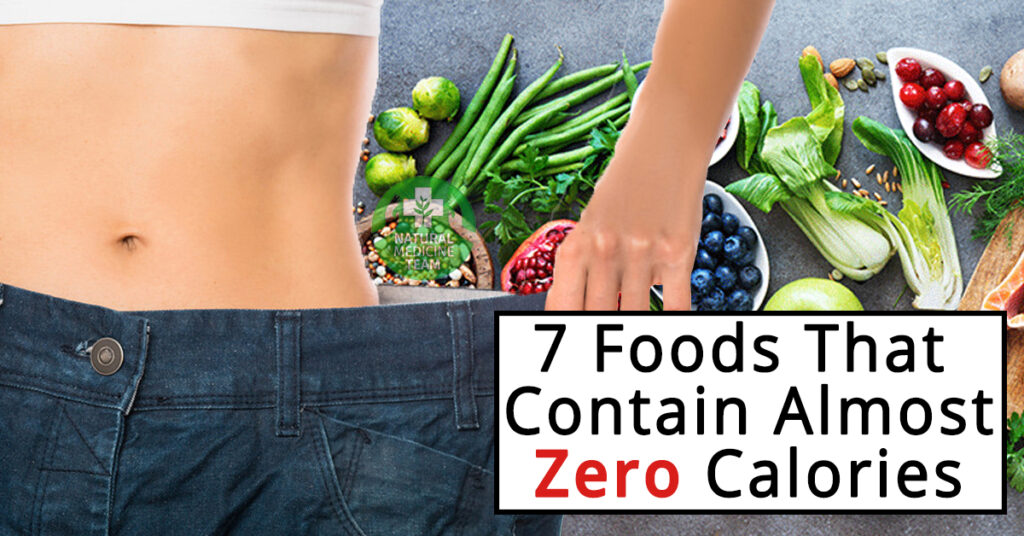Contrary to many people’s beliefs, many low-calorie foods have a very high nutritional value. These foods are usually fresh fruits and vegetables and contribute to a rich, healthy, and balanced diet.
Table of Contents
Caloric and nutritional value
It is very important to distinguish caloric or energy value from what nutritional value means.

When we talk about calories, we actually mean the energy value of food, and we do not take into account its potential to make us fat. The body needs a certain amount of energy or calories daily to perform various functions. Calories are not in themselves a bad thing. Their constant excess leads not only to aesthetic but also to health problems.
Nutritional value refers to the diversity and amount of macro and micronutrients. Macronutrients are carbohydrates, fats, and proteins, while micronutrients are minerals and vitamins.
Based on this, we can not conclude whether a food is nutritious or not just based on its caloric composition.
In this article, we give you 7 types of food with a caloric value below 10, and on the other hand with a particularly rich nutritional composition. This nutritious concentrated food is especially suitable during the weight loss process, but it is very important that it is always present on our daily menu.
Spinach (7 calories in a cup)
Spinach is great for a good salad, but did you know that it is also great for the eyes, bones, heart, etc. and that it is considered one of the healthiest vegetables in general?
Such properties are provided by its rich nutritional composition – powerful antioxidants, such as lutein and zeaxanthin, provitamin A, vitamin K, vitamin C, magnesium, calcium, iron. These antioxidants protect the eyes from a number of diseases, protect the heart, strengthen bones, and some studies suggest that spinach can even prevent certain malignancies.
Due to the presence of certain antinutrients that make it difficult to absorb minerals from food, it is better to eat spinach cooked than fresh, but fresh is especially useful.
Mushrooms (8 calories in half a cup)
Mushrooms are especially popular among people who have a completely plant-based diet, due to their typical taste, consistency, and structure reminiscent of meat, but also the nutritional protein composition.
Additionally, there are several different types of mushrooms, with different rich nutritional and flavor characteristics. Chanterelle, boletus, agaricus, oyster mushrooms, etc.
Garlic (4 calories, one bulb)
Its extremely rich and specific taste makes it one of the most used spices in the world, and it is present in various forms in almost every traditional cuisine.
In the past, it was used as a remedy for various conditions, and according to research, today it is considered one of the most powerful natural antibiotics. Most of the positive effects are due to its antioxidant components (especially allicin) – garlic is good for the heart, immunity, mental health, bone health, hair, skin, liver.
Celery (6 calories in one stalk)
Celery can also be said to have a “negative caloric value”, ie the body consumes more calories in its metabolism than its energy value.
Although these claims are not fully confirmed, the fact is that celery has an extremely low caloric value and on the other hand a series of impressive actions as a result of the exceptional micronutrient composition – vitamins, minerals, antioxidants, and various phytochemicals.
Lettuce (about 8 calories in one piece)
Lettuce is a very good example of a nutritionally concentrated food, rich in water (over 95%) and micronutrients, while energy-poor.
This green leafy vegetable contains large amounts of vitamin C, B9, A, K, but also important minerals – potassium, magnesium, calcium, etc. This composition provides an impressive positive effect on heart health, bones, immunity.
Cucumber (8 calories in half cucumber)
One of the most refreshing foods in the summer is the crunchy and juicy cucumber.
The huge percentage of water, fiber, and micronutrient composition make cucumber suitable for various health aspects, such as cardiovascular health, reduced sugar, healthy bones, skin, but also for hydration and weight loss.
Arugula (5 calories in a cup)
Arugula is a very important part of the Mediterranean diet and with its regular consumption, many beneficial effects are possible. The specific taste and consistency make arugula good for salads, and it is often used in smoothies.
It is rich in vitamin K, B9, calcium, fiber, antioxidants, and various phytochemicals. This composition provides a range of health benefits, from better immunity and nervous system to healthier skin.
All the listed products that are nutritionally concentrated foods are especially suitable for adding to smoothies, because they have an extremely low caloric value, and by adding them you can add all the necessary micronutrients that you need during the day.
